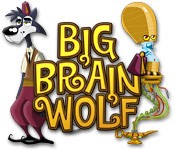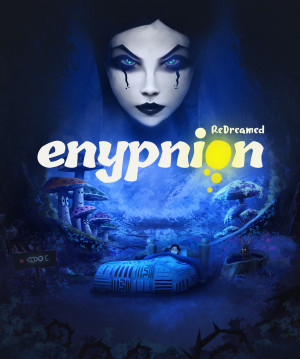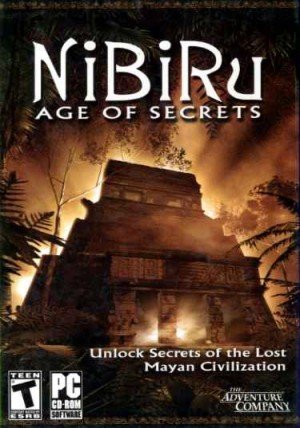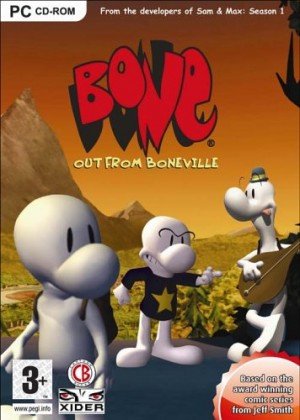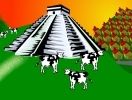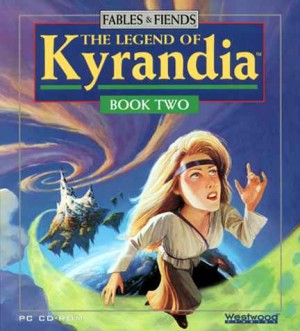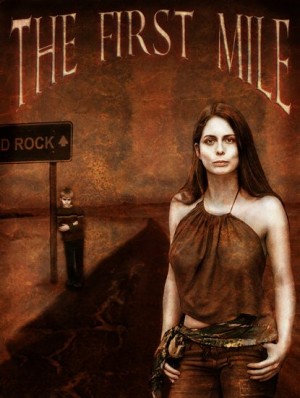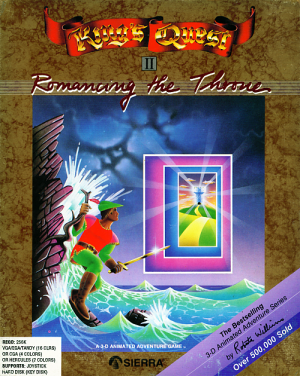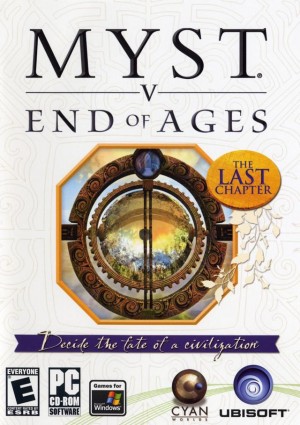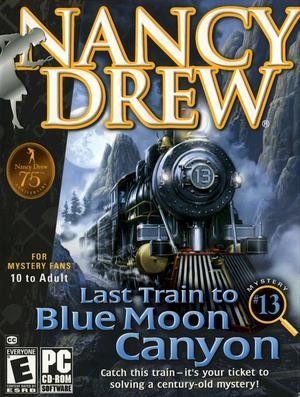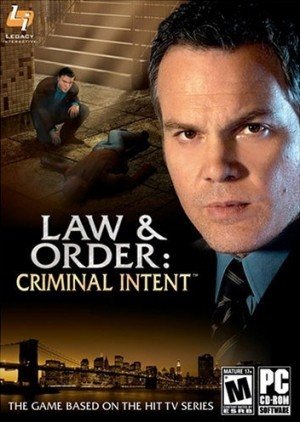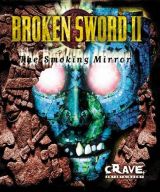Review for Big Brain Wolf
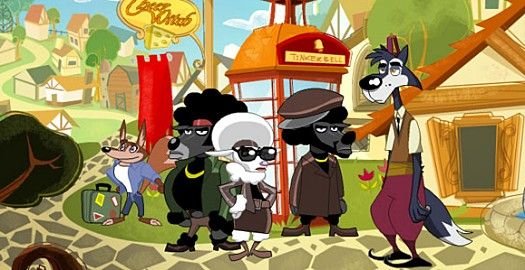
With so many downloadable titles being casual in nature, often aimed at those who are new to computer games or looking for something that can be picked up and then put down again with ease, it’s easy to overlook more substantial offerings like Big Brain Wolf. At first glance it may appear to be yet another lightweight casual title, but in reality it is a third-person puzzle-adventure game that offers more than enough content to be worthy of any adventure gamer’s attention.
The protagonist is the eponymous wolf, who is currently working through his apprenticeship as a genie. Unlike most wolves, our hero is a friendly soul who refuses to eat people and prefers the life of a vegetarian instead, much to the despair of his mother and fellow wolf clan. In order to become a proper genie, the wolf (who seems to be nameless until the end of the game) must solve puzzles armed with a pen and paper, along with some knowledge of his beloved game of chess. Yet it seems the world is against the wolf clan; with his mum arrested for the murder of Princess Red Riding Hood's grandmother, it's up to our vegetarian friend to prove her innocence while capturing the real culprit and graduating as a genie in the process.
This storyline is quite shallow, without any real surprises or sudden developments, but this is made up for by the interesting characters and the overriding fantasy theme. As you have probably guessed from the background, Big Brain Wolf is set within a land of fairytales, but with a mixture of cultural references thrown in for good measure. You'll come across the Charming family and the three pigs (who, in a nice twist, are actually villainous), dragons, Pinocchio acting as your mother's lawyer, Gepetto depicted as a mad scientist and inventor, and Tom Thumb as a celebrity superstar. Your tutor and partner-in-crime, the genie who conjures up the many puzzles you'll solve, is actually a robot, complete with wires and interesting head gear.
The fairytale theme is reflected in the cartoony visuals, filled with bright and colourful characters and backgrounds, with plenty of scenery featuring castles, beanstalks, knights, forests and dungeons that re-create the feel of living in a picture book world. If there is a criticism, it's that some of the scenes aren't very detailed, lacking the polish of a bigger budget title. It's also a shame that music and speech are fairly neglected. Only the occasional piece of jazzy music is present in certain scenes, as silence fills much of the adventure, broken only by the odd sound effect, the most common being a fanfare noise upon successfully completing a puzzle. Voice acting is also absent, with only a few lines spoken at the outset and the rest of the dialogue displayed as text.
The conversations between the genie and the wolf are the most engaging, both mocking yet helpful for getting through the many trials. On the whole, the writing is nicely done, proving to be informative and at times comical, with plenty of humour between the characters, mostly criticizing the hero's inability to be a 'proper' wolf that likes to devour things. It's the banter and descriptive comments of the world you explore that provides most of the non-puzzling entertainment, successfully making up for any shallowness in the storyline department. Videogame fans will notice the re-naming of the Xbox to the Woodbox that constantly needs to be replaced, as well as the portraits of characters named after Nintendo icons like Samus, and little touches like these are fun to discover.
Controls for the game are of the traditional point-and-click variety, where selecting items or characters on screen will allow you to interact with them, and it is possible to move to different locations by clicking directional arrows that appear. The wolf moves extremely slowly, but none of the areas are very big, so you never have long to wait. In one departure from most traditional adventures, there is no smart cursor or highlights to help you identify hotspots. Like adventure games of old, you’ll simply need to click everything to see if each object yields any useful information or results. Some puzzles require you to drag items by holding down the mouse button and moving the mouse in the necessary direction, but it’s all very intuitive.
While at first you are quite restricted to where you can go, as the adventure progresses more locations are opened up and it is possible to move freely between multiple areas without any hindrance. You can talk to everyone you meet on your quest, often triggering different lines of dialogue, even from those that have little to do with the actual plot. Puzzles often result from these conversations as new problems present themselves, whether it is trying to locate fellow wolves who can inform you about possible murder suspects, getting past security guards to visit your mum in prison, aiding Sara the sheep break out of jail in return for her help, or locating mirror fragments (doubling as a video recorder) that contain vital clues. One of the tasks sees Sara demand a drink to quench her thirst before she’ll give the wolf the information he needs; cue a water-related puzzle that sees you trying to get a certain amount of liquid from one container into another with exact measurements.
With this style of puzzle-based gameplay, it's clear that Big Brain Wolf owes a lot to the likes of Professor Layton. In fact, when it comes to a handful of puzzles, such as placing queens on a chess board so their paths do not cross, the traditional hanoi blocks game and re-arranging match sticks to make particular shapes, you could swear that they came straight from the Professor’s world and into this one. Other puzzles are also heavily inspired by the popular DS series, but they are integrated well enough to make sense in context, rather than just being thrown in for the sake of it. From word games and tracing shapes using only one continuous line to shuffling blocks into certain spaces and decoding secret messages, the puzzles are quite diverse. None of them involve collecting items or inventory quests, however, as they are all logic puzzles that arise simply from clicking on points of interest in the environments or certain characters.
This wide range of puzzles varies in difficulty from simple to deceptively challenging, at which point the hint system might come in handy. You start off with a few to get you going, but rather than make it easy for you, additional hints have to be earned by playing brain exercise games, aimed at improving different aspects of memory. These include memorising sequences of colours, deciphering clocks placed in different positions, recalling names given to items on screen, and matching symbols. At the end of each minigame, your score is charted so you can see how well you are progressing with each memory activity, which is useful if you are trying to improve in different areas. How well you do determines how many points are awarded, and reaching a certain goal unlocks a new hint key. The main problem with this system is that if you do get stuck and require the use of the hint (with three available per puzzle), you'll need to repeatedly replay these memory games in order to progress, which becomes tedious.
With 60 puzzles in total, spanning 5 chapters and around 10 hours of gameplay, there's certainly plenty of content to get to grips with, although there are a few gripes I need to mention. Since puzzles occur simply by clicking items in the background, it is possible to completely miss some that aren't essential to progressing the storyline, without any indication as to where these might be. By clicking on the genie's lamp at the corner of the screen, you can access a menu that keeps track of the storyline in each chapter, brain exercise games that can be played at any point and a list of puzzles unlocked in each chapter (each re-playable when solved). It is possible to unlock them all if approached in the right order, but during my first play through of the game, I missed about six puzzles by focusing on the plot-specific obstacles.
Towards the end of the game, some of the puzzles do start to repeat themselves – there are about four variants on the tower of hanoi, not to mention quite a few chess-oriented ones. While this is in keeping with the main character's passion, it is repetitive and tiresome for anyone who has little interest in the board game. The story also doesn't have much in the way of an ending, with just a couple of conversations taking place before “The End” message is displayed, which is a bit of an anti-climatic way to finish the game.
Despite its few corner-cutting measures, however, Big Brain Wolf is an enjoyable puzzle-adventure that will surprise those who may be tempted to dismiss it as yet another generic casual title clamouring for your attention. It may not have a deep plot or even the production values that are to be expected of modern adventure games, but its low downloadable cost makes for very good value, providing hours of lighthearted fun, and at the end of it all what a big brain you’ll have!


